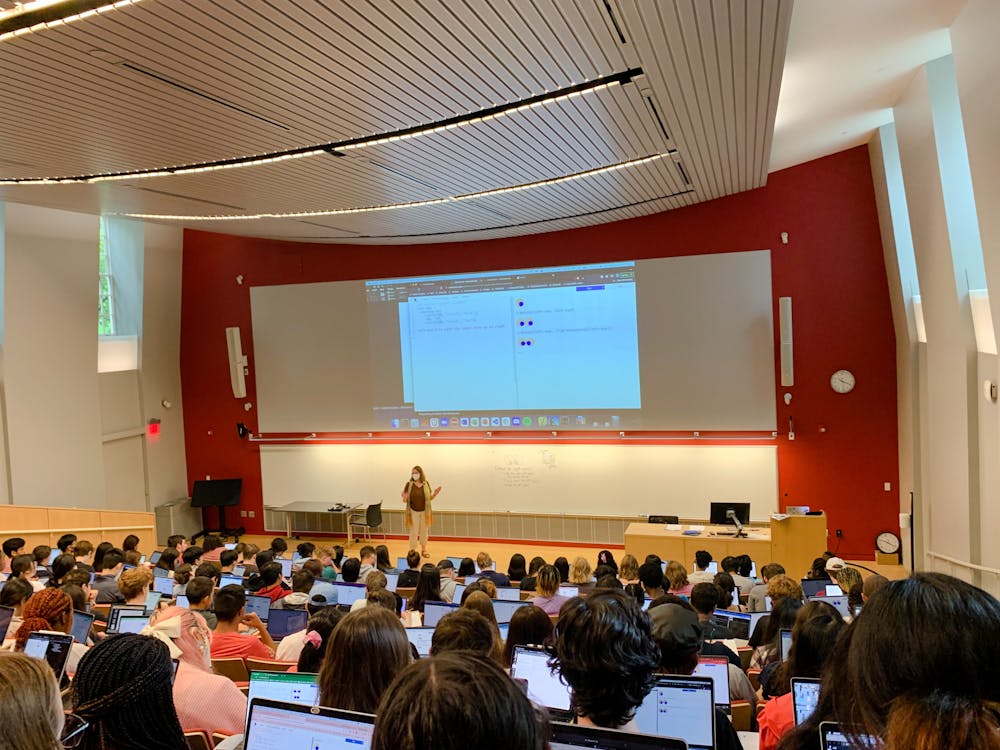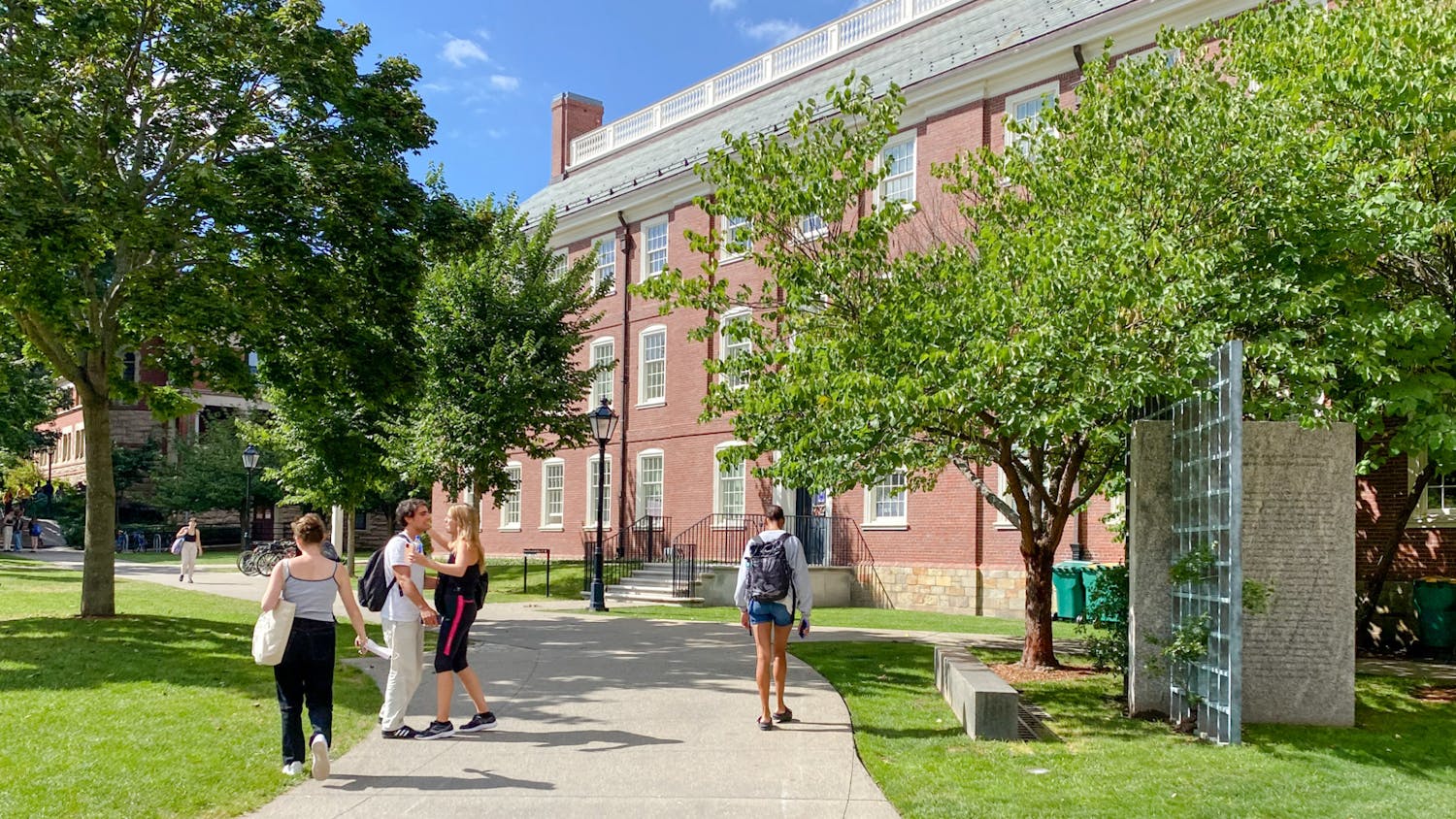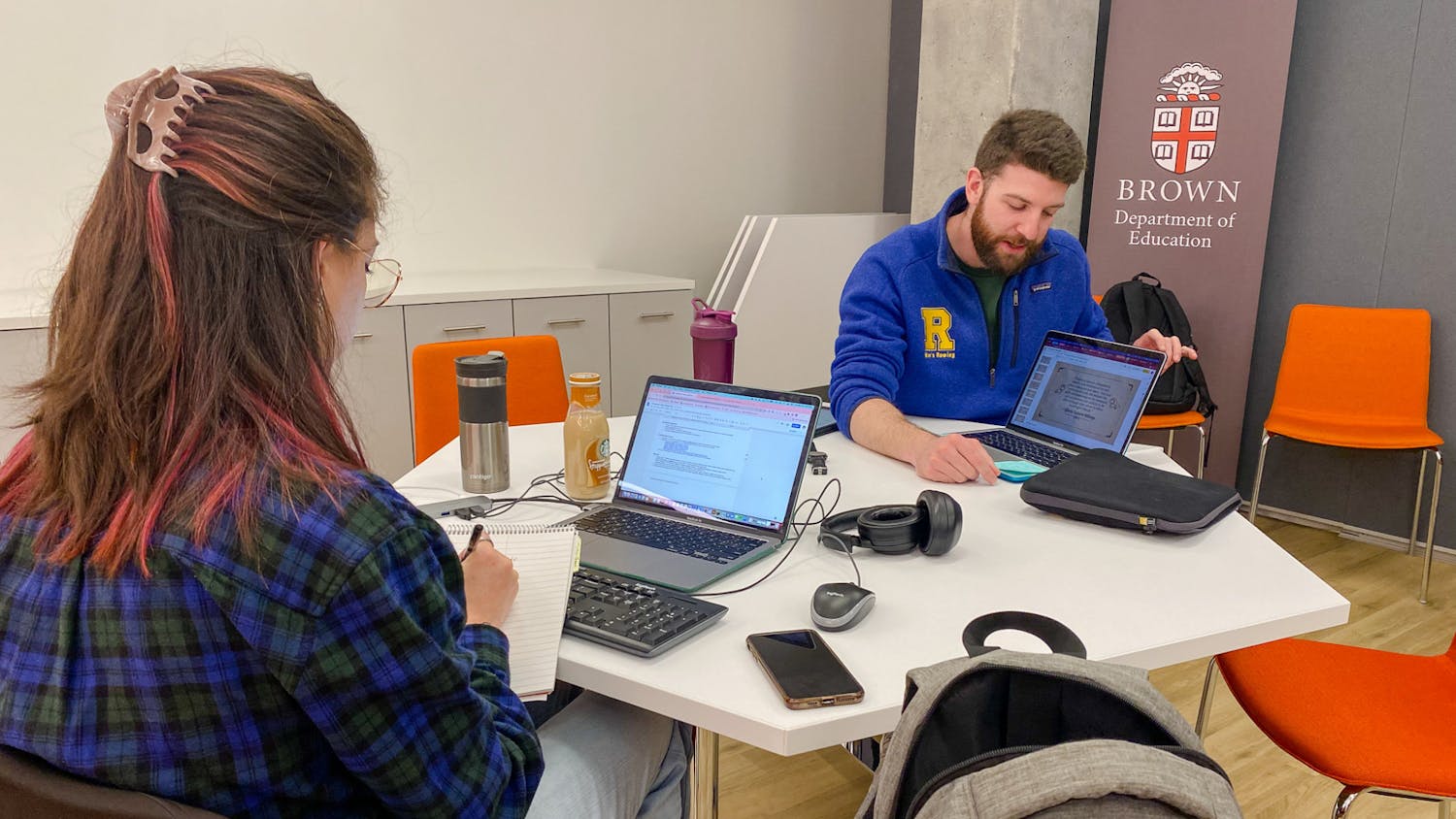When Olivia Booth ’24 returned to her dorm after her first day of classes with a sore throat, she took an at-home COVID-19 test as a safety precaution. Fifteen minutes later, two red lines appeared on Booth’s test, and she entered a period of isolation that would last through much of shopping period.
“I feel hideously underprepared for the start of the semester,” said Booth, who is now out of isolation.
Classes for the fall 2022 semester began Sept. 7, and students are experiencing their first in-person shopping period since the start of the pandemic without mask or testing mandates. Students and instructors shared concerns about COVID-19 safety without such restrictions in place and discussed how courses can better accommodate students in isolation.
According to an Aug. 10 University-wide announcement from Provost Richard Locke P’18, all classes must be held in the mode that they were originally listed in Courses@Brown, even during shopping period.
“Brown requires that courses be offered in the approved and advertised modality both for the benefit of students and to ensure the University remains in compliance with our accreditation and federal reporting obligations,” Locke wrote.
For Matty Lichtenstein, postdoctoral fellow in International and Public Affairs, the return to in-person learning has brought “with it an energy and intellectual experience that remote classes don’t usually provide.”
Lichtenstein said she wishes she had had the option to consider conducting some shopping period classes over Zoom, especially because of the difficulties of managing classroom density during shopping period.
For some students, the lack of a mask mandate and regular testing during shopping period has been a source of concern.
“My biggest worry has been the lack of a mask mandate throughout shopping period,” Makieda Mckenzie ’25 said. “I think it’s really scary to consider that COVID is still spreading, yet our one protective factor … is being taken trivially, especially since everyone has just arrived on campus after traveling.”
With the exception of health care facilities and the Warren Alpert Medical School, “the University is not currently requiring the use of face masks on campus, regardless of vaccination status,” Locke wrote in the announcement. Instructors may still require masks in the classroom at their discretion.
“I’ve only had one professor require masks, and the rest are proceeding as if COVID never happened,” Ava Balbuena ’25 said. “It also definitely worries me that there’s no strict testing system enforced because people can intentionally remain ignorant to the fact that they might have COVID and pass it on to people who would suffer more serious health repercussions.”
“We want to remind everyone that they have the option to wear a mask in any environment at any time,” wrote Vanessa Britto, associate vice president for campus life and student services, in an email to The Herald. Britto encouraged students to continue engaging in basic preventative practices like hand washing, using hand sanitizers, abiding by “appropriate cough etiquette” and keeping a COVID-19 test on hand.
The University is currently transitioning to addressing COVID-19 “much like … other infectious diseases,” which includes reporting public health information, including positive case numbers, when it can help to “inform useful action for the community,” Britto wrote. The University has communicated this transition to students multiple times, she added.
Booth said she would have liked to see some formal mandates for testing, specifically for the first few days of classes when big groups of students were congregating in small classrooms after traveling to campus.
“The first part of the semester always comes with more crowded spaces, and being mindful of basic preventative measures is really useful,” Britto wrote in response. “Masks and tests are available to students if they don’t have them.”
Despite the lack of a University-wide mandate, Kiana Murphy, a postdoctoral research associate in American Studies, is still asking their students to wear masks during classes — at least for the duration of shopping period.
“COVID-19 is still here and present with us, and as we know, there is an unequal distribution of harm for more marginalized communities because of the pandemic,” Murphy said. “I definitely wanted to keep all of my students safe, … so I continued the requirement for students to be masked.”
“It’s really important during shopping period especially, when students are in and out of the classroom and there is more mixing than normal,” Murphy added.
Murphy also implemented a hybrid class format during shopping period for students who had fallen ill and did not feel comfortable attending class in person.
“The students were grateful to be able to still tune in and introduce themselves to the class,” Murphy said. “They’re still part of the community.”
Only one of the courses Booth was shopping was offered virtually, so she spent most of her shopping period in isolation watching recorded lectures or looking at note slides posted online.
“I could get a grip of the class content but not the actual environment of the classroom,” Booth said, adding that she feels unprepared for the rest of the semester “because (she doesn’t) have time to keep shopping and (doesn’t) want to fall behind.”
“I don’t want fully remote classes,” she added. “I just wish there was more remote accessibility.”
Locke wrote in an email to The Herald that students unable to attend class must proactively contact their instructor. The University has asked instructors to remain flexible and support students with excused absences by developing and communicating preemptive absence policies, he wrote.
“These plans may or may not include remote options,” Locke added. Other options include recording class sessions, posting class notes and discussions to Canvas and ensuring assignments can be submitted via Canvas.
Imani Camara ’24 noticed that many of her professors have been attempting to remain flexible with student absences.
“Professors are seemingly more understanding. … I am guessing professors are just as worried as us,” Camara said. “I’ve missed two of my language classes already because I was sick and my professor was really cool about it and didn’t make it a problem at all.”
Murphy believes the pandemic has allowed institutions of higher education to collectively focus their attention on accessibility. “Being accessible should already have been part of our protocols and classrooms,” she said, “but I think the pandemic has forced us to kind of give new attention to how particular communities on campus are being affected by certain things.”
The University is continuing to work with faculty members and broader departments to offer support for remote-accessible courses and concentration pathways, according to Locke’s email to The Herald. This semester, the University is offering over 75 remote-accessible courses for students both in Providence and those studying from abroad.
Despite these efforts, Balbuena said she believes individual faculty members are lessening their leniency with absences, which “doesn’t feel fair” given the health risks evident at the start of the semester.
“I have mixed feelings about the University returning to normal,” Balbuena added. “It’s fun to have a more normal college experience, but, at the same time, I have friends that are in isolation or getting exposed to COVID, and it’s scary to see that nothing in the University’s systems is changing to accommodate that.”

Alex Nadirashvili was the managing editor of multimedia and social media for The Brown Daily Herald's 133rd Editorial Board. As a former University News editor, he covered faculty, higher education and student life, though his proudest legacy is The Brown Daily Herald TikTok account.

Sofia Barnett is a University News editor overseeing the faculty and higher education beat. She is a junior from Texas studying history and English nonfiction and enjoys freelancing in her free time.





